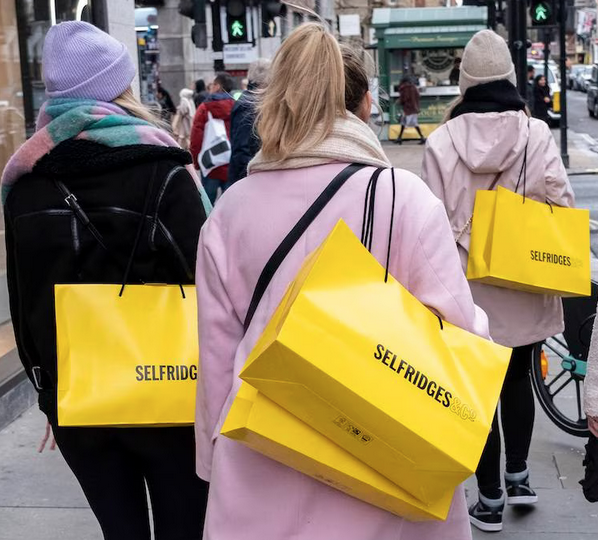
Last December, Tiffanie Darke took an inventory of all the clothes she’d brought over the course of 2022.
Though the former editor-in-chief of London’s Sunday Times Style magazine and brand strategist thought she had been abstemious — an effort to protect both the planet and her wallet — she had in fact bought some 20 new items, including one pair of loafers, three pairs of trainers, three shirts, three jumpers and “a really luxury pair of tracksuit bottoms.”
“I’m feeling a bit shame-faced,” Darke confessed in a video posted to Instagram on New Year’s Eve, before committing to a New Year’s fashion resolution to only buy five new things in 2023 and inviting others to join in.
The idea came from a report published by the Berlin-based think tank Hot or Cool Institute in November, which laid the blame for fashion’s hefty environmental footprint on overconsumption by wealthy shoppers in rich countries. To keep the industry’s greenhouse-gas emissions in check, in line with global efforts to stave off catastrophic levels of climate change, affluent consumers in places like the US, UK and France should be limited to an average of five new items a year, the report found.
“It was such a shock and it was so tangible … I’m not a fashion denier at all — it’s glorious. But it turns out it’s also really bad for the world,” said Darke. “[But] five things isn’t denying yourself fashion. Five things is enough.”
Or at least that’s the theory she set out to test this year.
The Rise of the ‘Reductionists’
Darke counts among a small but growing niche of people looking to disconnect from the churn of the fashion system.
Financial Times fashion editor Lauren Indvik has also pledged to only buy five new things this year. Fashion advocacy group Remake has launched a campaign to encourage its 155,000 Instagram followers to commit to buy no new clothes for the summer. And on TikTok, some “deinfluencers” are using their platform to urge followers to buy less.
The movement dovetails with a broader shift in the cultural narrative towards less conspicuous consumption, underpinned by growing anxiety about the climate and cost-of-living crises.
“There’s a cohort of consumers now — because it’s definitely not everybody — that feels stuff as an emotional load,” said Allyson Rees, a senior strategist at trend forecasting firm WGSN. For this group, financial pressures and growing awareness of fashion’s environmental and ethical shortfalls have turned once pleasurable impulse buys into a weight. “[There’s] guilt associated with those products now that I don’t think consumers were attuned to, even like three or five years ago,” said Rees.
These “reductionists” are one of four key emerging consumer profiles the trend forecasting agency has identified for brands to focus on ahead of 2025.
But while the conversation is getting louder, the number of people actually changing the way they shop remains small.
“It’s a bit of a David and Goliath thing,” said Ayesha Barenblat, founder and chief executive of the advocacy group Remake. “We’re up against the marketing machine of an industry worth $2 trillion.”
The Shopping Compulsion
When Darke first started her year of five new things, there was something sort of thrilling in the challenge.
She shopped her wardrobe, rediscovering and reworking forgotten gems, like a little-worn Prada dress she altered into a top. She identified gaps and spent months tracking down the perfect white shirt. And she removed temptations, avoiding shop windows and blocking social-media ads.
Then, last month on a work trip to Ibiza, where she co-runs a fashion store focused on responsible brands, she cracked. On an impulse, Darke bought a pair of gold silk cargo pants.
“They’re not practical: I won’t wear them every day,” said Darke. “Sometimes you need something really inappropriate to bring you joy.”
The temptation to shop — even for those highly engaged with the issues created by overconsumption and committed to change their habits — points to the reasons why we keep buying more and more clothes, even as the number of people who say they care about fashion’s environmental impact grows.
“We want to shop,” said Carolyn Mair, a fashion business consultant and author of “The Psychology of Fashion.” “Buying something new gives us a sense of high. We get dopamine from the hunt. We feel we look good in what we’re wearing. So regardless of the cost or consequences of making that purchase, it makes us feel good.”
Humans are hardwired to crave newness and the sense of social status and security that has long been linked to dress.
